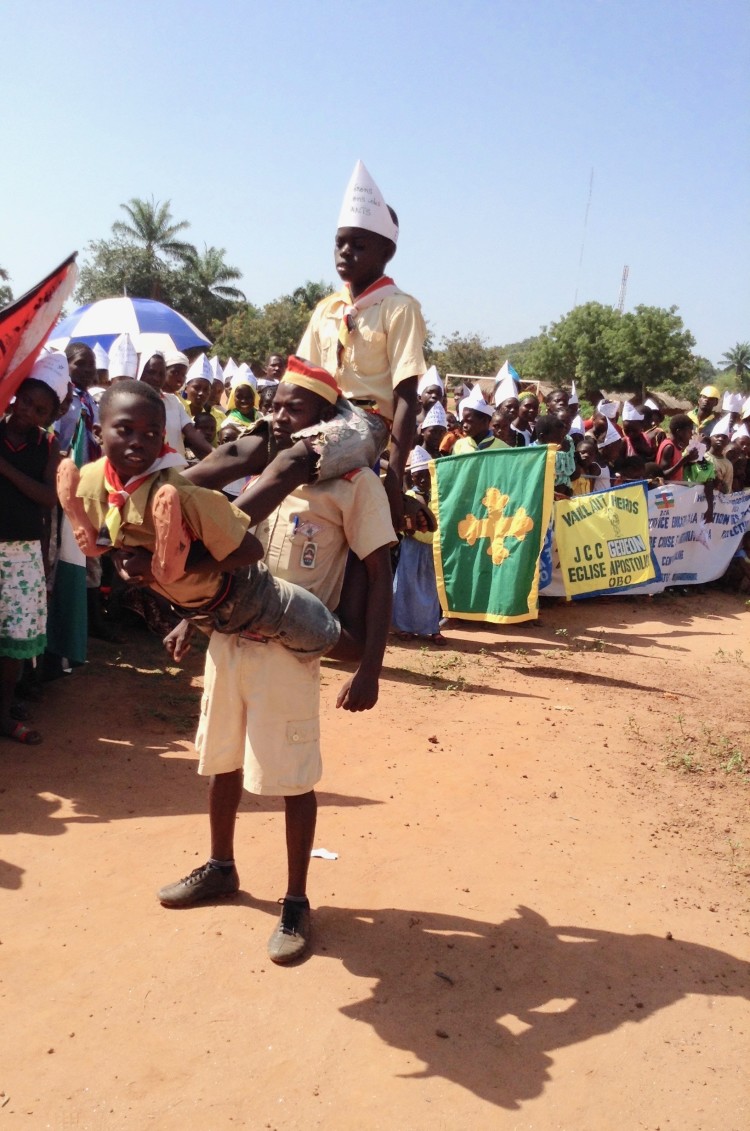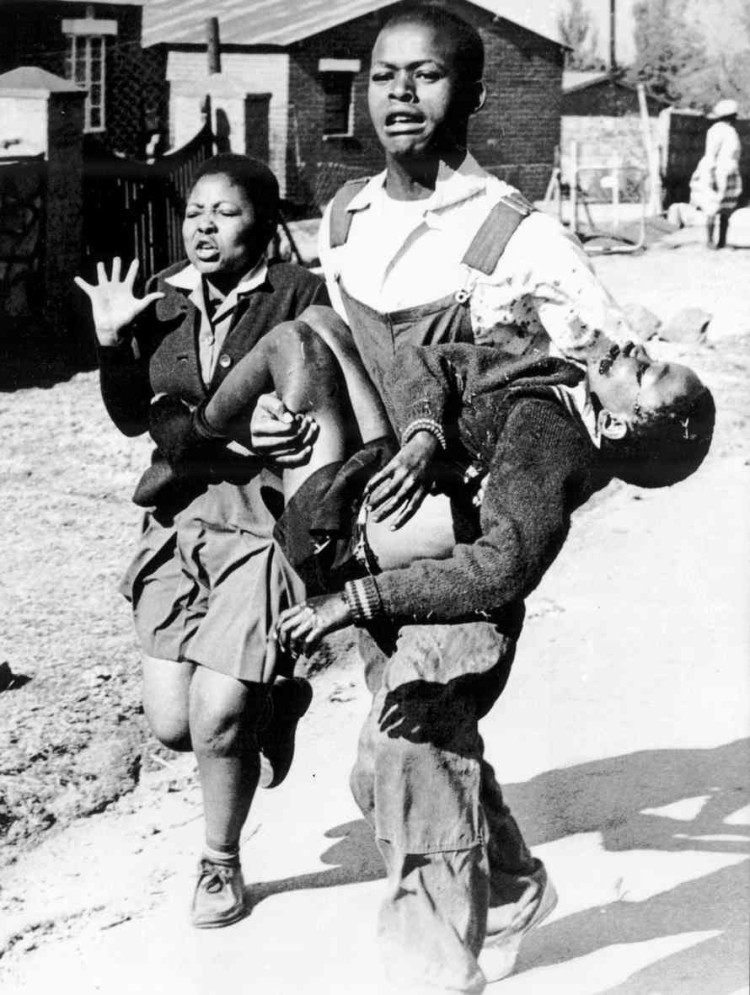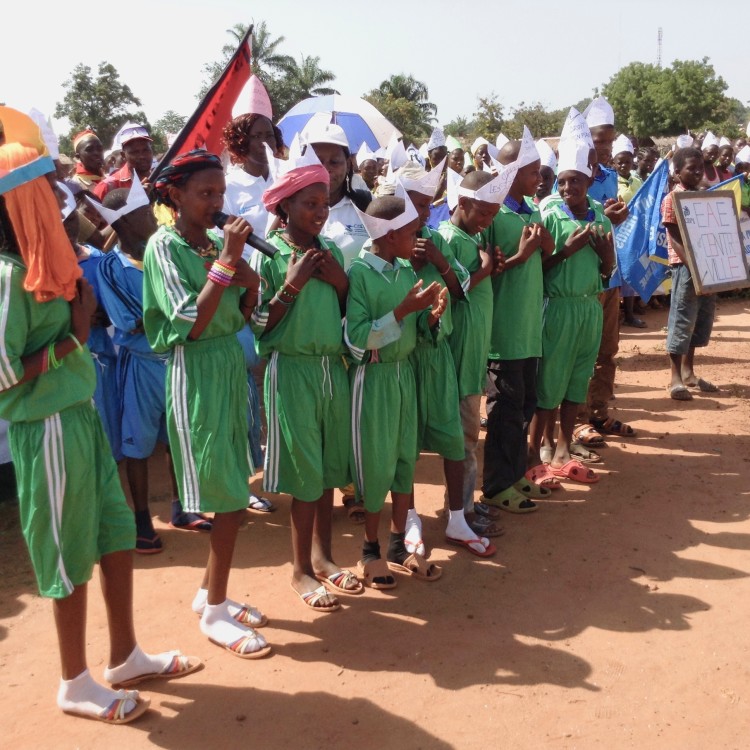On June 16, while we here in DC were just waking up, children in Nairobi, Kenya were busy celebrating International Day of the African Child through song, dance, and a rap battle. At the same time, hundreds were gathering in Batsinda, Rwanda for a commemorative walk that ended in a dance and music celebration. In Botswana, the African Women Leadership Academy were inspired by entrepreneurial and media leaders, and in Zimbabwe, children were lobbying in an annual “Child Parliament”. Where was Invisible Children during this day of continent-wide celebration? Well, several members of our team in the Central African Republic (CAR) were in the small, remote community of Obo, CAR watching a few local kids show off their skills.

Children in Obo, CAR amaze the crowd.
Every year, our Invisible Children team joins our friends in Obo to celebrate the Day of the African Child with music, dance, and a parade. It’s an important day for many communities across Africa that commemorates the historic Soweto uprising of 1976.
On June 16, 1976, thousands of black students gathered in the streets of Soweto, South Africa to protest a new law that prevented black South African students from learning in their native languages. During the protest, police fired upon the students. According to most accounts, nearly 200 children were killed and more than 1000 were injured. One of those killed was a young boy named Hector Pieterson (pictured below). His death, and the image taken above, became a uniting symbol for black students across South Africa who continued to fight for educational equality.

Photo of Hector Pieterson taken by Sam Nzima, 1976.
Today, communities across Africa remember the Soweto Uprising every 16th of June, celebrating the young people in their community and promoting every child’s right to equal education. This year’s theme, “Leave no child behind for Africa’s development” focuses on children in conflict zones and isolated regions who have extremely limited access to education. According to 2017 reports by UNICEF and ONE campaign, 73% of girls in South Sudan between the ages of six and eleven do not go to school due to violence and unrest. In CAR, conflict and instability have contributed to a severe shortage of teachers across the country where for every eighty children there is only one available teacher.
We believe that every child should have a chance at a bright future and, for that to exist, children, their families, and their communities must have freedom from violence and fear. That is why we continue to expand the reach of programs like our Early Warning Radio Network, Community-led Peace Committees, and FM radio programs which equip central African communities with the tools to prevent violence, protect one another, and recover from trauma caused by violent conflict. It’s also why, when communities like Obo come out to celebrate their children, we join them.

Children give speeches as an important part of the festivities.
You can help build a bright future for central African children with us. Support our programs today so that, one day, every African child can have both the safety and access to the education they deserve.
DONATE TODAY FOR A SAFER, BRIGHTER FUTURE FOR CHILDREN AND THEIR FAMILIES IN CENTRAL AFRICA.
Think people should hear about this?